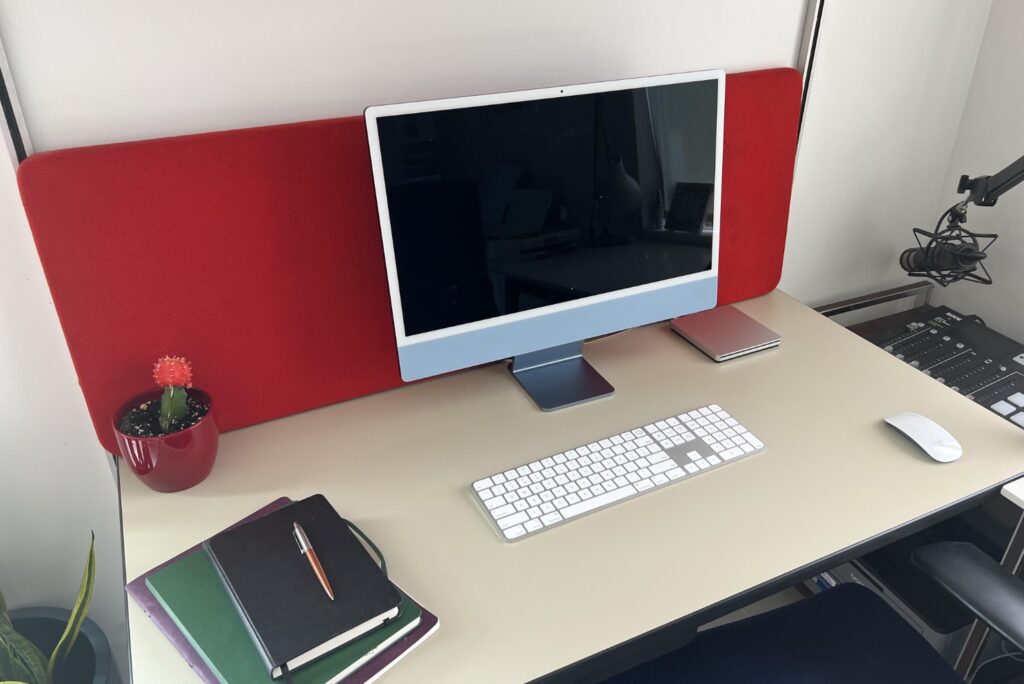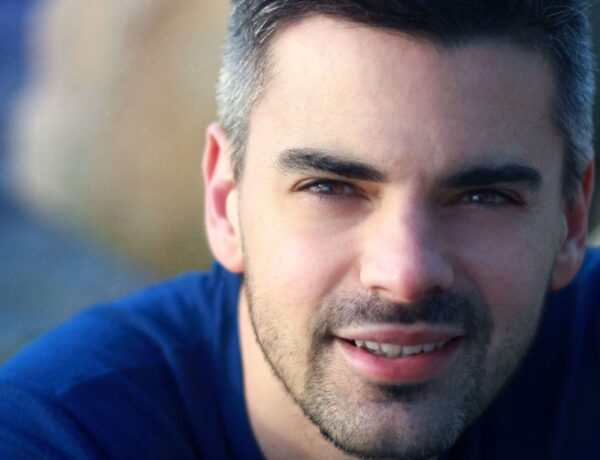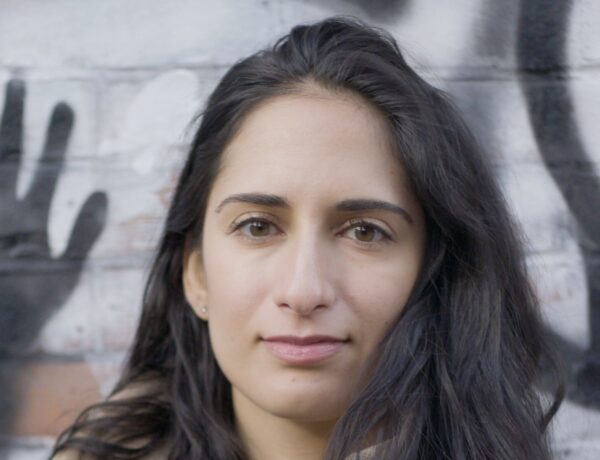Paul Bradley Carr has spent more than 20 years plumbing the darkest depths of the tech industry including as Silicon Valley columnist for the Guardian, senior editor at TechCrunch, and editor of PandoDaily.
His writing on technology and addiction has also appeared in the Wall Street Journal, Private Eye, The Sunday Times, The Daily Telegraph, Huffington Post, National Geographic, and others. 1414º is his first novel. Paul was born in Dunfermline, Scotland and currently lives in San Francisco and Palm Springs, California.
Each week, we publish a new daily writing routine from a famous author. Subscribe to our newsletter so you don’t miss out!
Hi Paul, great to have you on Famous Writing Routines. For those who may not know, can you please tell us a little bit about yourself?
Glad to be here! My name is Paul Bradley Carr and I spent 20 years as a journalist and columnist for publications like the Guardian (London) and TechCrunch in Silicon Valley. I mostly write about tech billionaires and the terrible things they do.
I also wrote three memoirs about addiction and my adventures in the tech industry. Last year, I wrote my first novel, a mystery/thriller about an ingenious killer targeting billionaire tech predators.
You’ve written a number of books over the years, but 1414° is your first novel. Can you take us through the creative process behind writing this book, and how it differed from your other works?
Working as a journalist taught me to work very fast to deadline and to distil very complicated stories down into 800 words or less. It also taught me the importance of never making stuff up. Of course fiction is all about making stuff up, and it also takes a very, very long time to tell a complicated story over 90,000 words.
Unlike with journalism where there’s an editor yelling at you every day/week for a story, fiction forces you to set your own deadlines – so most of my process was forcing myself to sit in a chair every day and write. Day after day, week after week.
Another big difference between nonfiction and fiction is that in fiction the characters have to be believable. In real life, people often act in strange ways for little to no reason and against their self interest (we all see this often in politics!) but in fiction, the reader needs to understand why a character behaves the way they behave – their motivations and back story – otherwise the whole story falls flat. This, I think, is the biggest surprise for journalists who became novelists: How much harder it is to be believable.
With the switch from having an editor set deadlines to forcing yourself to write every day, how long did it take for you to get into the rhythm of that routine? Was it a smooth transition or did you struggle initially?
I had written non-fiction books before so it wasn’t an entirely alien concept — but the difference is that with non-fiction you generally sell the book to a publisher based on a proposal, so for most of the writing process I would have an editor breathing down my neck, and a deadline. For fiction (again, generally) you have to write the whole book before a publisher will consider buying it, so that means 100,000 words without an editor or a deadline.
At first it was a huge struggle but then I found a writing coach/mentor (Lisa Cron, the author of Wired for Story: The Writer’s Guide to Using Brain Science to Hook Readers from the Very First Sentence) who acted as my unofficial editor for the project. She forced me to set my own deadlines and to send her pages every couple of weeks. That was transformative: Not only is Lisa an amazing coach (read her books!) but she also gave me the daily, weekly, and monthly structure that I needed.
What does a typical writing day look like for you?
I don’t really have a typical day — I usually have a lot of different projects going on at the same time so it really depends what the priority is. But yesterday, for example, I woke up insanely early (4am) in Palm Springs (where I live most of the time) and took a short 6am flight to San Francisco (where I live the rest of the time).
I was at my desk by 8:30am with a very large cup of coffee and some oatmeal and worked pretty much non-stop til lunchtime on emails, press stuff for the book, notes on other projects and general admin. I ate lunch watching an old episode of a british murder mystery show, which marked my transition for the day from the real world to fiction.
The rest of the day I spent working on the next novel – I try to write a thousand or so words a day on a writing day, but sometimes I’ll be happy just scribbling notes in a notebook. I love clever, twisty mystery plots but they take a lot of thinking/scribbling/drawing diagrams. I work incredibly hard to make very devious plots as simple to follow as possible. Another echo, I suspect, of my life as a journalist.
By 5pm I was done for the day, writing-wise, and finally got around to catching up with the day’s news. I’m a huge newspaper junkie, and get four delivered each day in Palm Springs. In San Francisco, I have to rely on TV news and online which is way less satisfying.
I’m curious to know where you go for inspiration. Are there any recent books, movies, works of art that have made you look at things differently?
I’m not sure about making me think differently, but I’m a lifelong superfan of Agatha Christie and other golden age detective writers. Anything with a devious murder, and ingenious explanation and I’m hooked. I particularly loved impossible crime writers like John Dixon Carr.
1414º was my attempt to write a very modern version of one of those books — Christie and Dixon Carr loved to use actual science for their plots and I’m the same: everything in 1414º was as technically accurate as I could make it, even though the plot (a series of awful tech moguls/billionaires driven to kill themselves by completely undetectable means) seems impossible.

If you could give just one piece of advice to a writer trying to get published, what would it be?
Write the book you want to write, and write the book you want to read. Writing a book is an incredibly slow and frustrating process — finding a publisher even more so.
Don’t try to second guess what the market “wants” or what agents/publishers are looking for. You’ll go mad trying, and you’ll hate trying to write a book you don’t love. Write what you know and what you love and trust that there’s an agent or publisher out there who will love it too. You’re going to struggle anyway, so you might as well have fun with the writing.
If I could give two pieces of advice, it’s that agents and publishers are frequently wrong about what is going to sell and what will be popular. That’s ok. They’re not psychic — everyone is just trying to make their best guess based on experience. If you get rejected (and you will), keep pitching.
If you still get rejected, publish it yourself. Thanks to ebooks, it’s never been easier or cheaper to get your world out in the world. But, if you’re going to publish yourself, hire a great editor, and listen to them.
What does your writing workspace look like?
I’m very lucky to have a dedicated office in my home in Palm Springs. I’m even luckier that it has a view of beautiful mountains and a swimming pool. So of course I have to make sure my desk isn’t facing any windows otherwise I’d be constantly distracted.
Apart from the view, my writing setup is very simple: A desk, a Mac, and a stack of notebooks. A pen. I do a lot of my planning with pen and paper but then generally write all my drafts on screen.
I also like to listen to music when I write but again can be easily distracted by the endless choice offered by music streaming platforms. So I have an old school CD player and a rack of CDs. Mostly I have the same CD on repeat when I write. I want it to just be background noise.

Before you go…
Each week, we spend hours upon hours researching and writing about famous authors and their daily writing routines. It’s a lot of work, but we do it out of our love for books and learning about these authors’ creative process, and we certainly don’t expect anything in return. However, if you’re enjoying these profiles each week, and would like to send something our way, feel free to buy us a coffee!



No Comments